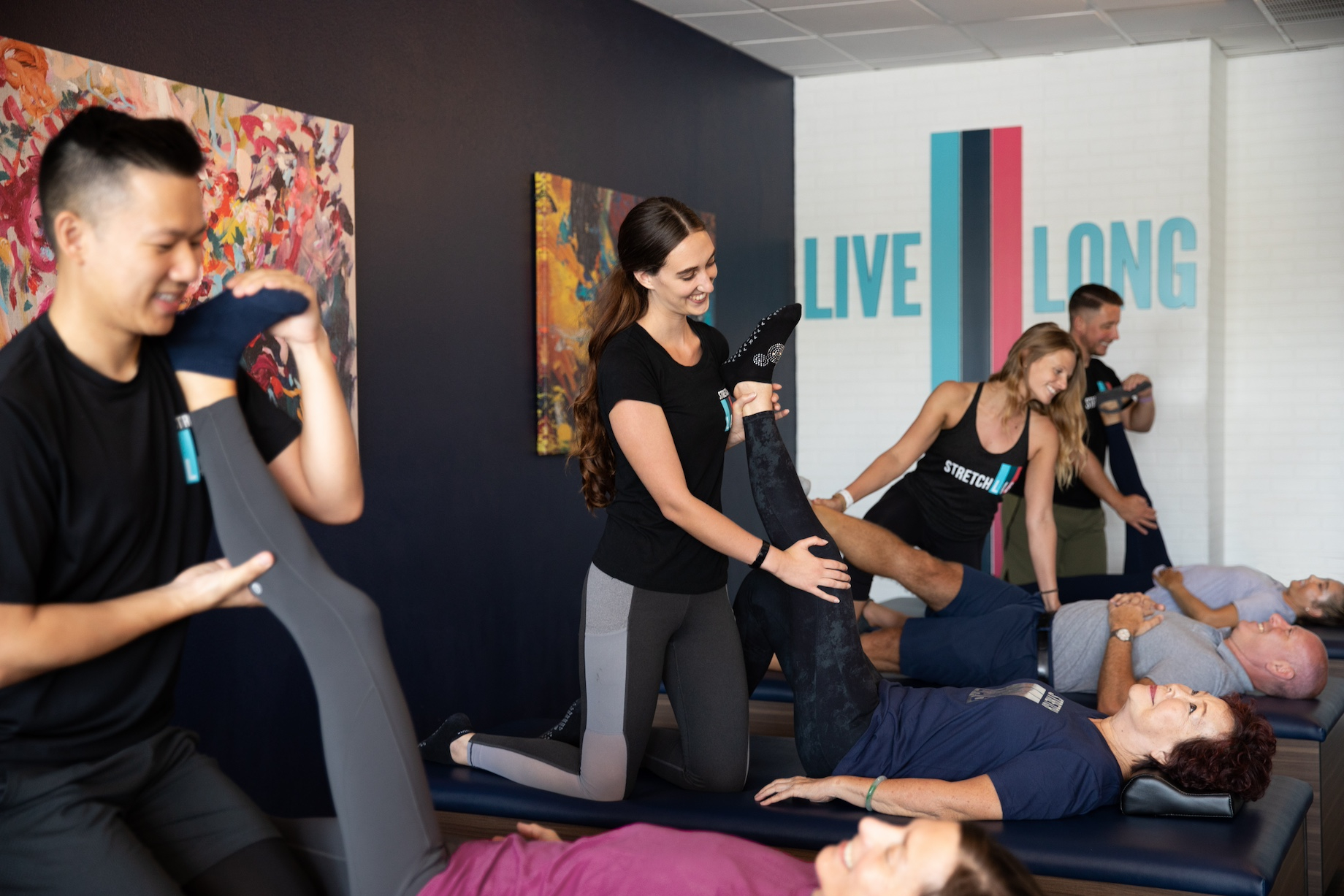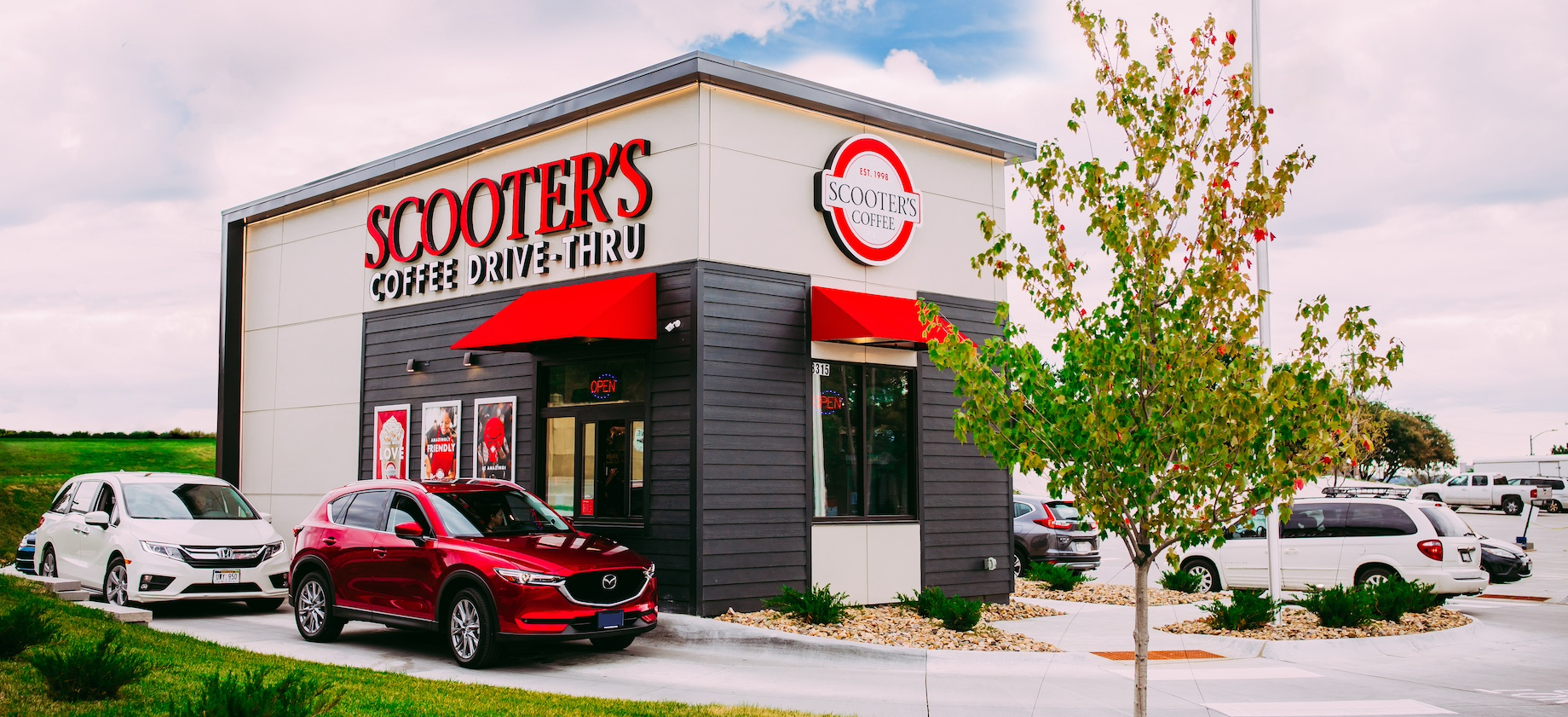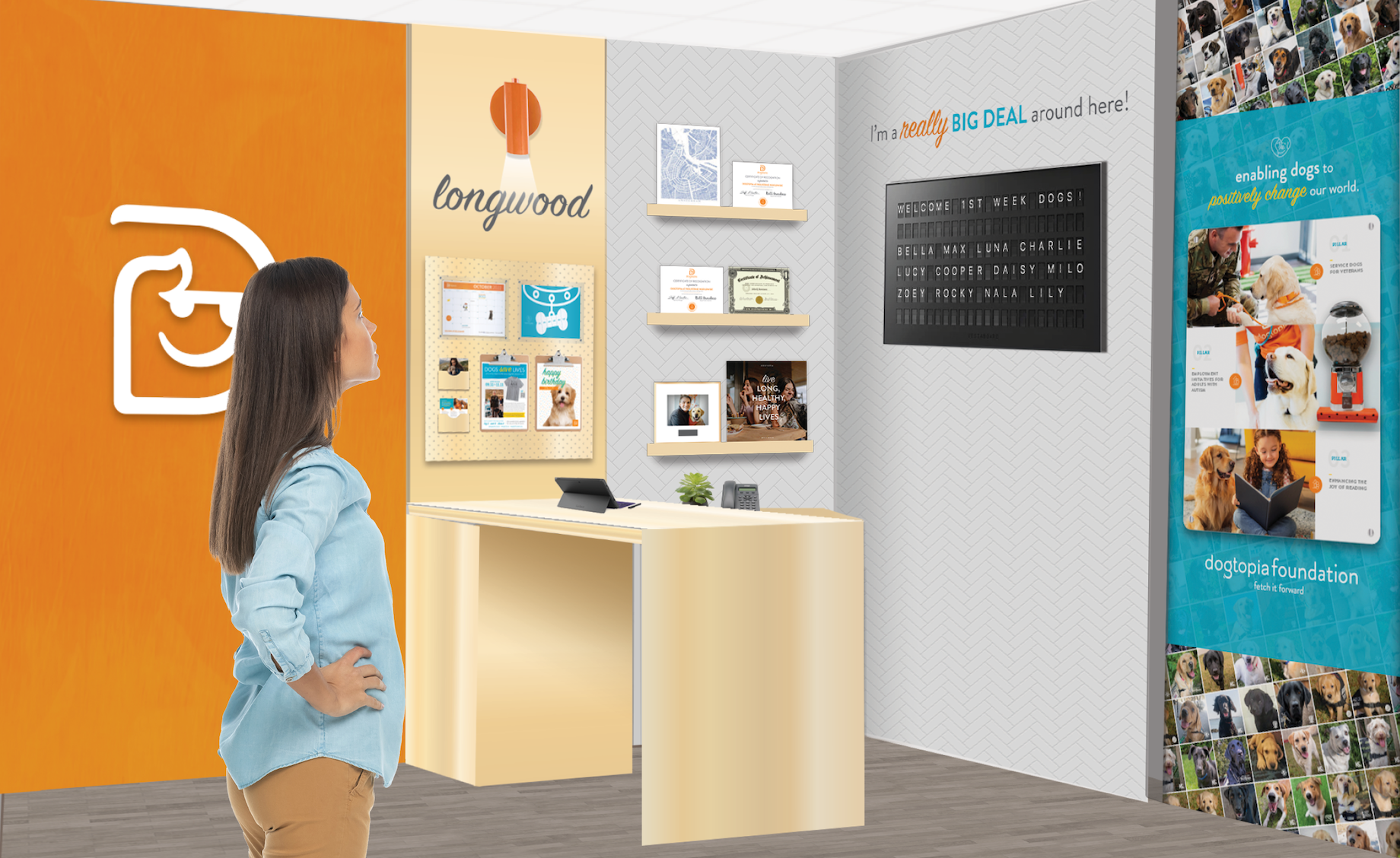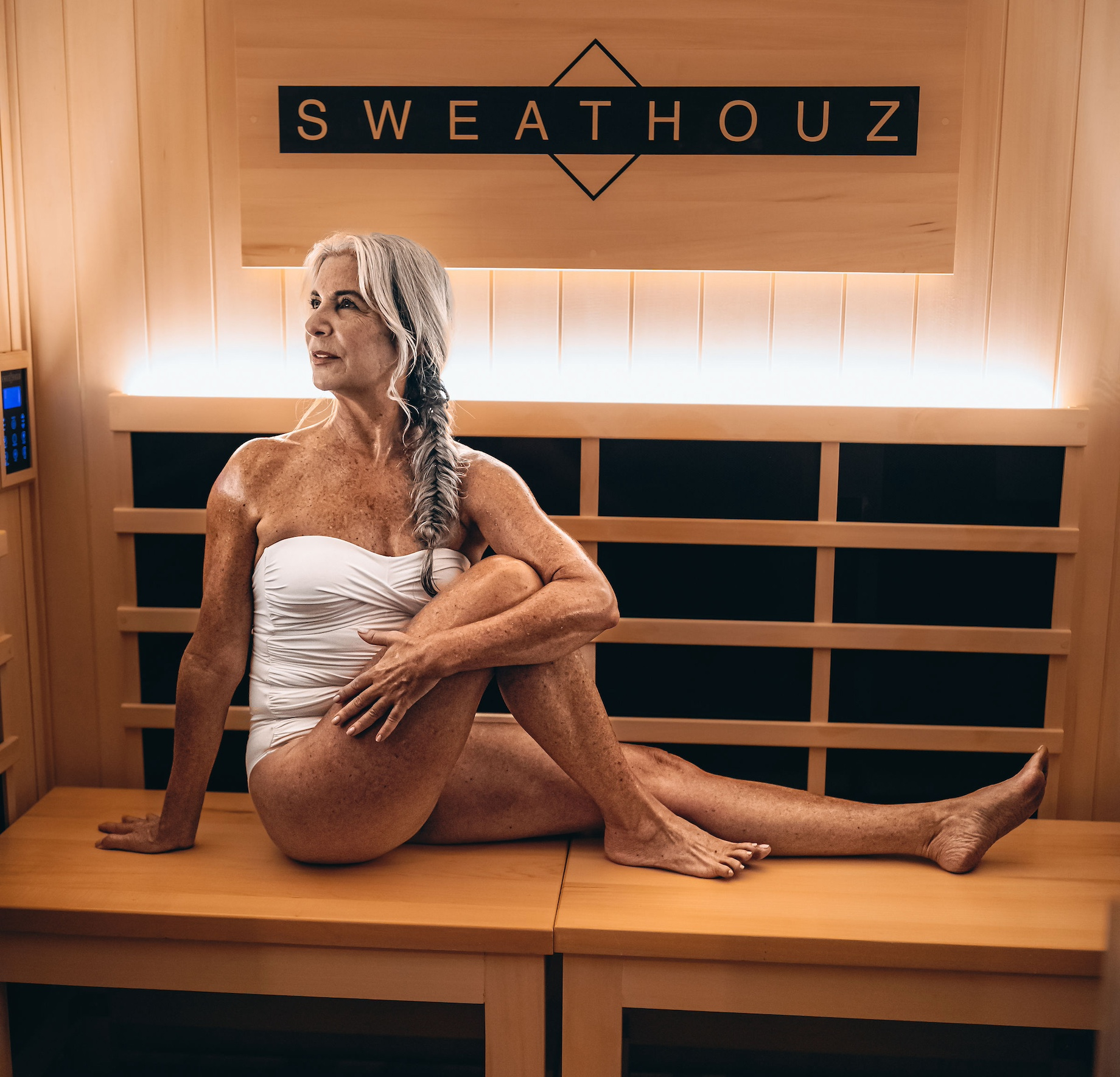The number of franchisees in the U.S. is growing fast, thanks to the health-and-fitness craze, the popularity of drive-thrus, surging demand for coffee and chicken, and private equity’s desire to cash in on it all. “I can speak to the growth of franchise operators, and from what I have seen, all of them have robust expansion plans,” said Brixmor vice president of national accounts Evie Gross. “Xponential Fitness did 500 new openings across all of their brands last year, and they just announced that they are going to do another 500 this year.”
By the end of 2023, Xponential Fitness had grown its annual systemwide sales in North America to $1.4 billion, with 3,062 open studios and 717,000 members. Its 10 brands include Club Pilates, CycleBar, Pure Barre, Row House and YogaSix. According to a press release, studio visits to Xponential Fitness concepts jumped 31% last year to 51.5 million. That’s solid traffic for landlords.

Xponential Fitness has grown its annual systemwide sales in North America to $1.4 billion, with 3,062 open studios. Its brands include StretchLab.
Laid-off tech employees form one driver of franchisee expansion, as they shift gears into business ownership by buying into franchise concepts, added Retail Specialists executive vice president of corporate services and leasing Bill Read. “Companies like Google, Microsoft and Amazon are all cutting back, and these were really good-paying jobs,” he said. “If you’re accustomed to making that kind of money, you’re probably best advised to buy into a franchise system with a proven concept and sales.”
U.S. franchise growth will jump 1.9% in 2024, adding 15,000 units, according to an International Franchise Association outlook. That would translate into 821,000 units across the country, IFA said, their output growing to $893.9 billion.
Food-&-Beverage Concepts
According to IFA, quick-service restaurants will be among the fastest-growing franchises this year, which jibes with Read’s perspective. “I would summarize it as chicken, chicken and more chicken and also coffee, coffee and more coffee,” said the Atlanta-based executive. “Look at the chicken wars going on right now. You’ve got Dave’s Hot Chicken, Chicken Salad Chick and Raising Cane’s Chicken Fingers, not to mention Popeyes chicken, Bojangles and Zaxby’s. In my neck of the woods in the Southeast, these brands are everywhere.”
Meanwhile, “there is just a coffee blowout going on,” Gallelli Real Estate vice president of real estate intelligence and business development Garrick Brown said in a January webinar with Retail Strategies. By Brown’s count, coffee concepts aim to open more than 1,150 stores in 2024. The list includes nonfranchise operators Starbucks at 400 stores and Dutch Bros Coffee at 160, as well as franchisee-friendly Scooter’s Coffee at 150 and Caribou Coffee, Dunkin’ and 7 Brew at 100 each. Smaller franchise operators like Biggby Coffee, Dunn Brothers Coffee, Aroma Joe’s and The Human Bean each plan to open anywhere from a dozen to 60 stores this year. “I’ve counted about 40 different coffee concepts that want 15 units in 2024,” Brown told the webinar audience.

Today’s fast-growing, franchisee-friendly coffee brands include Scooter’s Coffee, which aims to open 150 new locations this year, according to Gallelli Real Estate’s Garrick Brown.
A new crop of drive-thru operators are allowing landlords to start making money from underused parking areas, he added. One concept to watch is CosMc’s, a small-format, Starbucks-like concept from McDonald’s. Its debut location in Illinois “had eight-hour waits on its first day,” Brown said on the webinar. “Everything preliminarily tells me that this is going to be a huge success.”
Fitness Concepts
Gross, who handles many franchisee relationships for Brixmor, said other fast-growing franchise categories include beauty, pet health care and sports entertainment. “Ace Pickleball Club is all franchisee driven,” she said. “Their prototype is approximately 30,000 square feet, so they have leased some of our Bed Bath & Beyond boxes. It’s exciting.”
Newer spins on health-and-wellness — such as hot yoga studios, cryotherapy centers and infrared sauna clubs — continue to be popular, she said. “Even though people are tightening their spending, I don’t see them pulling back on fitness or health and wellness.”
Buying a boutique fitness franchise can be a smart move for individual entrepreneurs, Read noted. “They can be owner operated, and the investor doesn’t have to buy a piece of land on which to build an expensive QSR building,” he explained. “It’s a way for somebody who has been in the workforce for 10 or 15 years to own their own business and be part of a growing franchise.”
FROM THE ICSC SMALL BUSINESS CENTER: A Franchisee Explains Why She Chose Franchising over Starting Her Own Business
That matches the story of Legacy Franchise Concepts executive chair Jamie Weeks, who became interested in franchising in 2014 after a 16-year Wall Street career. “I was 38 or 39 years old and at a pivot point,” recalled the Atlanta-based entrepreneur. “I had a great job for a big bank, but when I asked myself whether I really was fulfilled, the answer was no.”
Weeks felt many fitness concepts were out of step with the average person. Walking into such studios, people might see muscle-bound athletes doing box jumps, squats and deadlifts at a frenetic pace or feel intimidated by the sight of hardcore yogis twisting into pretzel-like postures. By contrast, Weeks concluded, the group workouts of then-newcomer Orangetheory Fitness, which he tried in 2014, were more accessible. “I was like: “OK, this is going to have mass appeal.’”
He began buying Orangetheory franchise licenses in metro Atlanta and, over the next seven years, went on a spree of license acquisitions and leasing deals. “We were expanding Orangetheory as quickly as possible. I got extremely lucky because I had latched onto a brand that had a great look and feel and was growing with a lot of momentum.”
In 2017, Weeks sold 12 Orangetheory Fitness studios, with options for 36 more, to Boston-based private equity firm Prospect Hill Growth Partners, working closely with Orangetheory Fitness CEO Dave Long on the transaction. He was the first franchisee in the system to close such a large transaction with a private equity firm. “It was a life-changing event for me and my family,” Weeks said.
He kept on acquiring Orangetheory licenses and opening studios via Honors Holdings, which was his company at that time. When Weeks sold his majority stake in Honors Holdings in 2021, its Orangetheory portfolio had grown to 142 locations. Along the way, he also had begun acquiring licenses for pet daycare concept Dogtopia. Today, his 75 licenses for that concept make him its largest franchisee, he said.

Dog daycare concept Dogtopia is in the midst of a national franchise rollout with a smaller-format, 4,000- to 5,000-square-foot prototype that has more play room for pooches. Image credit: Dogtopia
Workout-Recovery Trend
Weeks’ private equity-backed Legacy Franchise Concepts now is scaling up a concept of its own, SweatHouz, or SWTHZ, this time as franchisor. Weeks said SWTHZ’s contrast therapy — infrared sauna followed by cold plunges — has boosted his own sleep and mood and that it reduces inflammation and promotes faster workout recovery.
The first two SWTHZ locations opened in the Atlanta suburbs right before COVID. Real estate prices and leasing activity were depressed by the pandemic, and Weeks pushed ahead in Charleston, South Carolina; Dallas; Boston; and Portland, Oregon. “I asked myself if I was going to be the guy who takes real estate in the middle of a global pandemic. I said: “All right, let’s go all in.’”

The private equity-backed franchisor of newly launched SweatHouz said the workout-recovery concept could have as many as 150 locations by 2025.
The concept, which runs from 1,400 to 2,300 square feet, caters to affluent fitness enthusiasts. Ideal co-tenants include Whole Foods, Trader Joe’s and boutique fitness operators. At press time, SWTHZ was on track to sell 250 licenses to around 30 franchisees by the end of March, Weeks said. The company likely will give its existing franchisees the exclusive right to purchase additional licenses and will form a waiting list for outsiders. His goal is to bring the store count to 150 by 2025.
Private Equity Boost
Mom and pops with one or two locations are still part of the franchisee mix, but larger, multi-unit franchise companies, some with hundreds or even thousands of units, are a dominant force. One example is the $4.5 billion, 2,600-unit franchisee Flynn Group. Its brands include Applebee’s, Taco Bell, Panera Bread and Planet Fitness. “We have seen growth from multi-unit operators just getting bigger and bigger,” Gross noted.
Private equity firms are playing a bigger role, too. Affiliates of Atlanta-based Roark have invested in about 100 multi-unit franchisees globally. The 69,000 locations generate approximately $77 billion in annual system revenues, the company said. Its investments include Inspire Brands, which owns Arby’s, Baskin-Robbins, Buffalo Wild Wings, Dunkin’, Jimmy John’s and Sonic. Roark’s $9.5 billion bid to acquire Subway is under Federal Trade Commission review, according to press reports.
RCS Real Estate Advisors is spearheading the franchisee-based, U.S. rollout of a U.K. fitness group that is majority-owned by private equity firm Leonard Green & Partners, with KKR as a significant minority investor. Offering a “boutique fitness experience on a budget,” PureGym has grown to 595 clubs in Europe and the Middle East with more than 1.9 million members. Open 24/7, the zero-contract locations offer fitness equipment, in-person classes and on-demand virtual workouts. Over the next five years, the goal is to open as many as 300 U.S. gyms under the Pure Fitness brand, which takes an app-based approach to signups and gym access, said RCS managing director Moe Puri. “What separates Pure from everybody else is their tech, which really appeals to younger people.”

RCS Real Estate Advisors is handling a U.K.-based franchisor’s roll out of as many as 300 Pure Fitness gyms across the U.S. over the next five years.
RCS is marketing the concept to prospective master franchisees that boast development expertise and deep pockets. “We’re shopping for that big private equity company that wants to come in and say: ‘Yeah, I'll sign up for 50 locations.’ It would be ideal if you could have a situation where one takes the Southeast, another the Northeast and another the Mid-Atlantic, so we’re having those conversations.”
The sweet spot for the U.S. likely will be around 15,000 square feet, Puri said. “Community, lifestyle centers and power centers are our first choice, but in the U.K., they have mall locations that do great, so we’re kicking the tires on a lot of possibilities.” In a deal signed this past February, RCS also is handling a national rollout of Dogtopia franchises.
MORE FROM C+CT: U.K.’s PureGym Aims to Open as Many as 300 Pure Fitness Locations in 5 Years in North America
Supporting Mom and Pop Barriers to Entry
Even as larger entities play an outsize role in franchising, some franchisors aim to diversify their systems and attract smaller entrepreneurs from underrepresented groups. Ben & Jerry’s now waives its $39,500 franchise fee, as well as three years of royalty fees, for qualifying businesses that are at least 51% owned by “candidates identifying as Black, Indigenous or a Person of Color.” Franchisor Retro Fitness’ Project Lift is a similar initiative.
But would-be Ben & Jerry’s franchise owners still need to have “a strong credit history and a minimum net worth of $350,000 … with $100,000 in cash and securities,” according to the company’s website. Start-up costs for a full-size shop can run as high as $474,300. Along the same lines, would-be Retro Fitness franchisees and their business partners need $500,000 in liquid capital and $2 million in combined net worth to qualify, per that brand’s website.
Such requirements can be prohibitive for smaller entrepreneurs, noted &Access founder and chief strategist Bobby Boone. His Washington, D.C.-based firm offers market analyses, site selection and other real estate and economic development solutions, working with underinvested local communities and historically excluded entrepreneurs. Many of these clients “have not had the same access to capital, which is primarily why there haven’t been as many franchises that emerge from our work,” Boone said.
Because franchisees tend to enjoy a competitive advantage, some entrepreneurs’ relative lack of access to franchise systems could be seen as a widening of the opportunity gap. Boone’s &Access provides real estate and business advice that might otherwise have come from a franchisor. Nonprofit organizations, municipalities and foundations often fund the work. Developers’ programs for new entrepreneurs also can close that gap sans buying into an expensive franchise, Boone said. He cited the experience of his friend Mallory Shelter, who owns a jewelry shop in Edens’ Union Market District in Washington, D.C. “She commends Edens for the work that they did in helping her with permitting and navigating the construction process, tasks that often are barriers to first-time, brick-and-mortar businesses,” he said.
Kingsway Development president Kevin Bryant is buying franchises like Jamba and PostNet and plans to give talented store managers their own path to ownership. His company is redeveloping a 200-acre site in St. Louis’ underinvested Kingsway District along Delmar Boulevard. “Why not give these operators a way to also be an owner?” he asked. “St. Louis is growing. If the community we are building does well and there are opportunities to open additional locations in [other] places like Chesterfield, we’ll invest.”
The marketing, training and operational support franchisors provide can be invaluable, Bryant noted. “There is no better way to teach young people entrepreneurship than with a franchise because [franchise systems] come with so much built-in structure.”
By Joel Groover
Contributor, Commerce + Communities Today